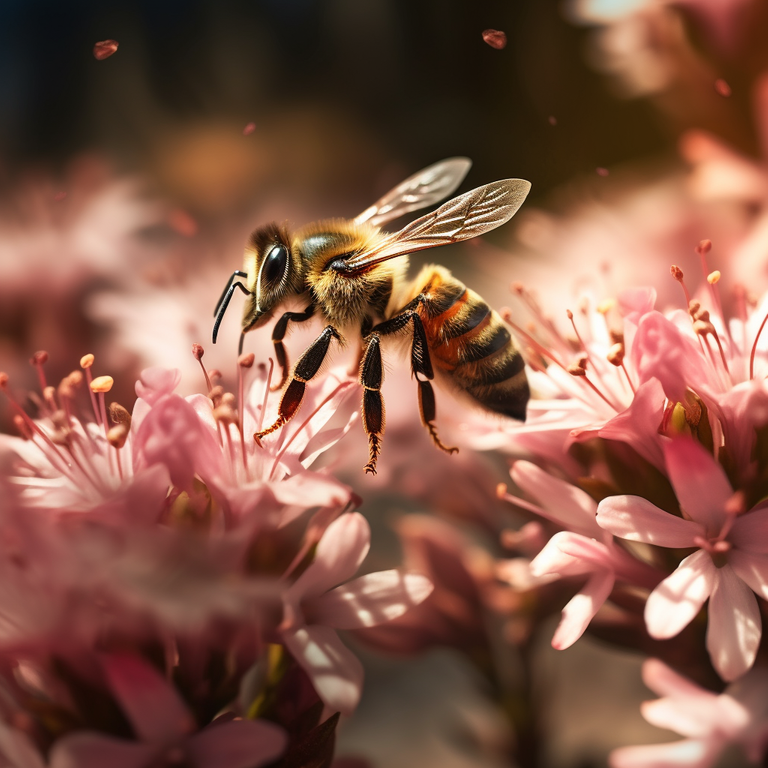
Bees are fascinating and highly important insects that play a vital role in our ecosystem. Belonging to the family Apidae, they are known for their unique ability to pollinate plants, which is crucial for the reproduction of numerous flowering species. Bees are found all around the world, inhabiting diverse habitats ranging from lush forests to urban gardens.
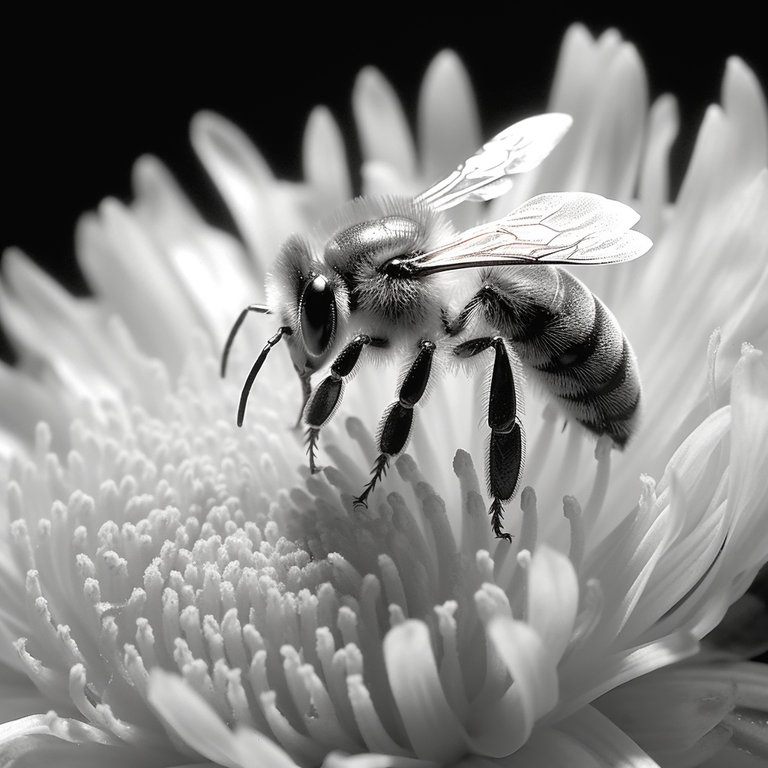
One of the most commonly recognized species of bees is the honey bee (Apis mellifera). Honey bees are social creatures that live in complex colonies, consisting of a queen, drones, and worker bees. Each member of the colony has specific roles and responsibilities. The queen is the largest bee and the only fertile female, responsible for laying eggs. Drones are male bees whose primary function is to mate with the queen. The majority of the colony is composed of worker bees, which are all female. They perform various tasks, including collecting nectar and pollen, building and maintaining the hive, and caring for the young.
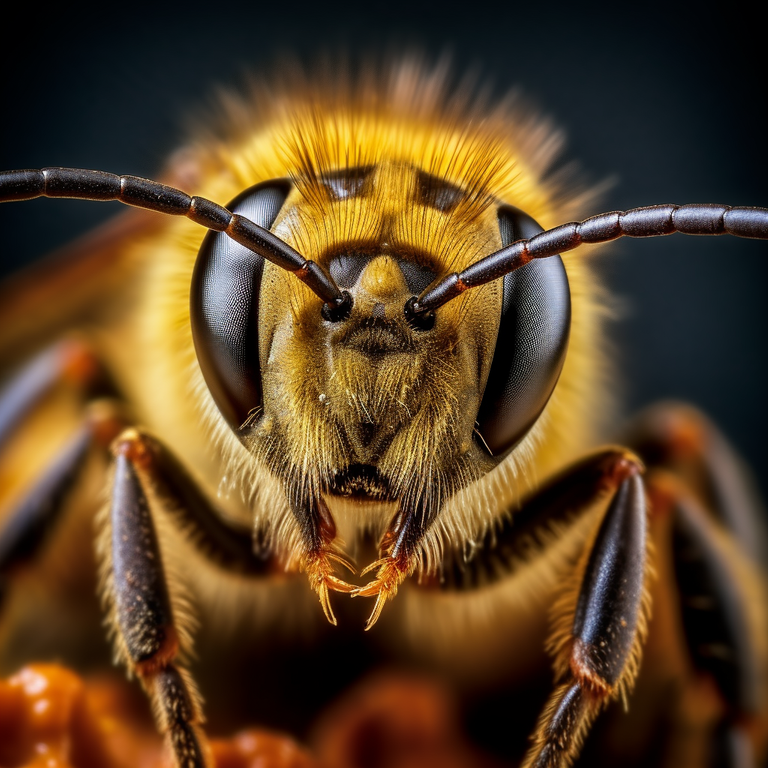
Bees are known for their exceptional communication skills. They communicate with each other through a combination of intricate dances and chemical signals. For example, honey bees perform a "waggle dance" to convey the location of nectar sources to their fellow hive members. This dance includes specific movements and angles that indicate the direction and distance of the food source.

Besides honey production, bees are renowned for their role as pollinators. As they move from flower to flower in search of nectar, they inadvertently transfer pollen grains, enabling plants to reproduce. This process is vital for the growth of fruits, vegetables, and other crops that humans rely on for food production. Without bees, many plant species would struggle to reproduce, potentially leading to significant ecological and agricultural consequences.
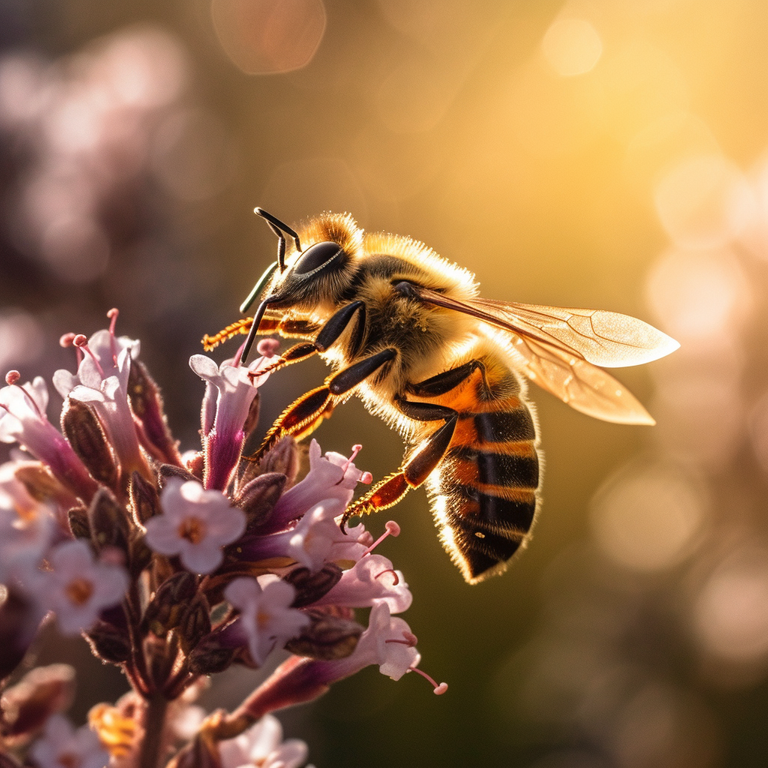
It is worth noting that bees face numerous challenges today. Factors such as habitat loss, pesticide use, climate change, and diseases have contributed to declining bee populations in various regions. As a result, efforts are being made worldwide to raise awareness about the importance of bees and promote their conservation.
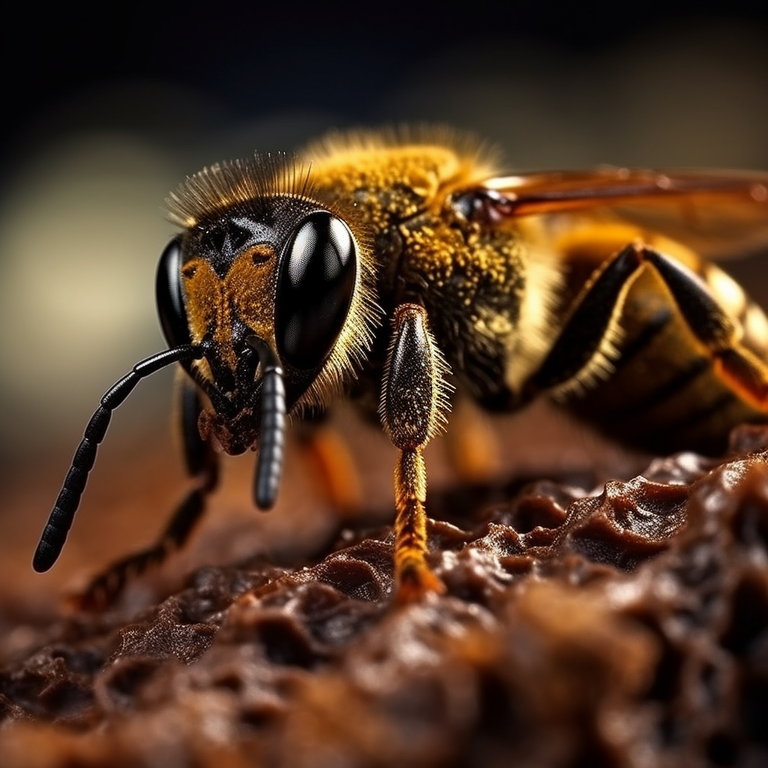
In conclusion, bees are remarkable insects with an essential ecological role. They are efficient pollinators, ensuring the survival and diversity of many plant species. By their actions, bees indirectly support the food chain, benefiting both humans and the ecosystem as a whole. Understanding and appreciating these remarkable creatures is crucial for safeguarding their well-being and preserving the delicate balance of our natural world.
(Fuji Provia 100F), (Kodak Ektar 100), (Cinestill 800T), (Fujifilm Pro 400H), (Kodak Tri-X 400), (Ilford Delta 3200).
There is reasonable evidence that this article is machine-generated. Posting such content is considered fraud. Fraud is discouraged by the community and may result in the account being Blacklisted.
Guide: Why and How People Abuse and Defraud
If you believe this comment is in error, please contact us in #appeals in Discord.